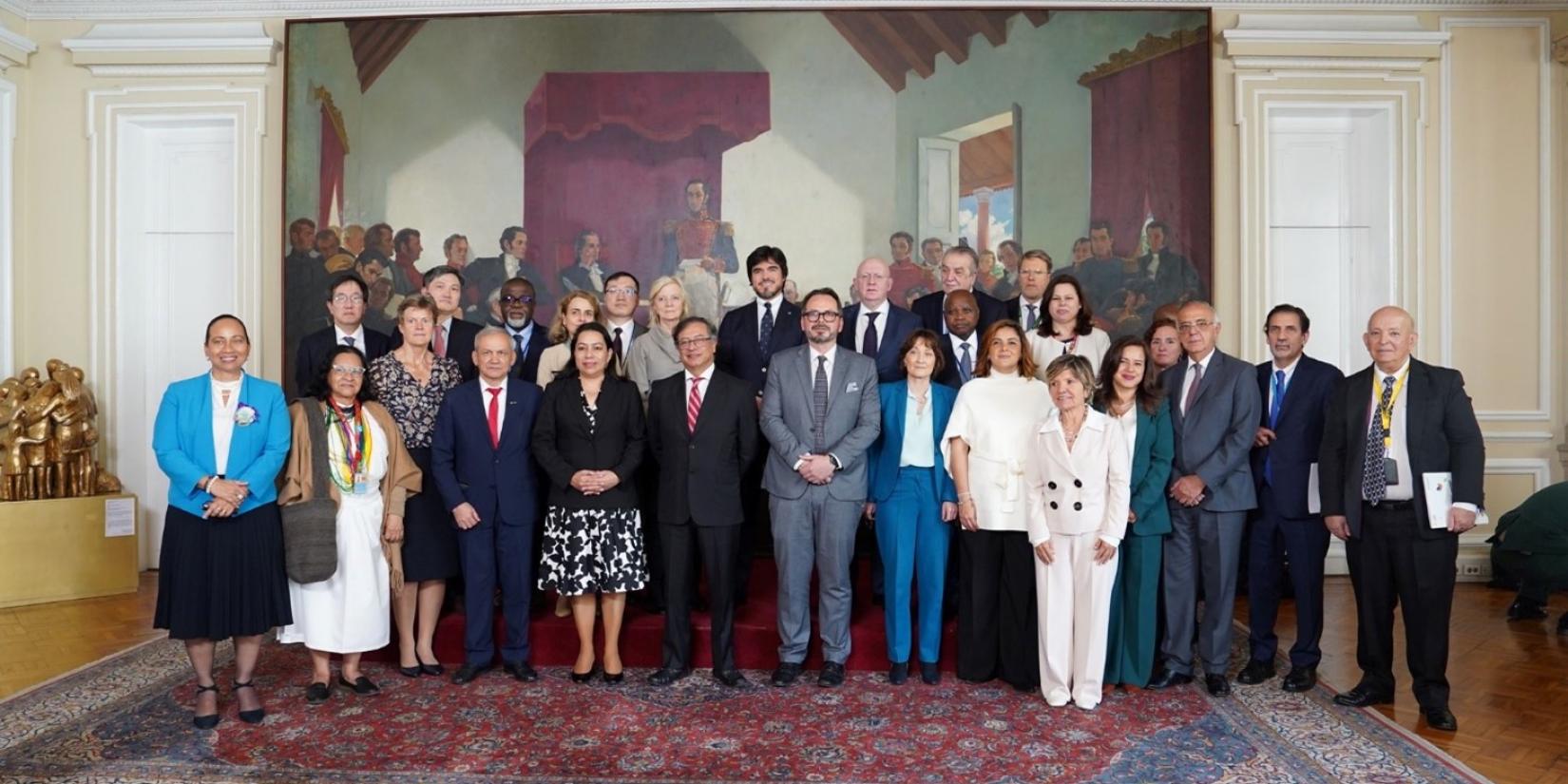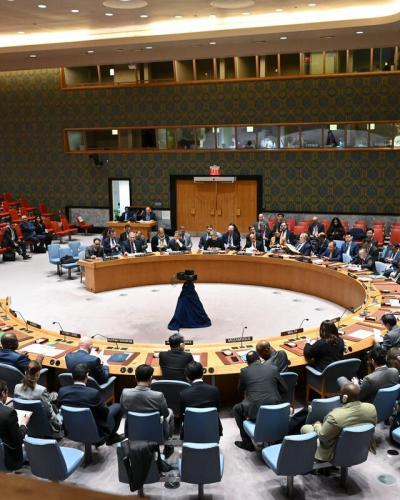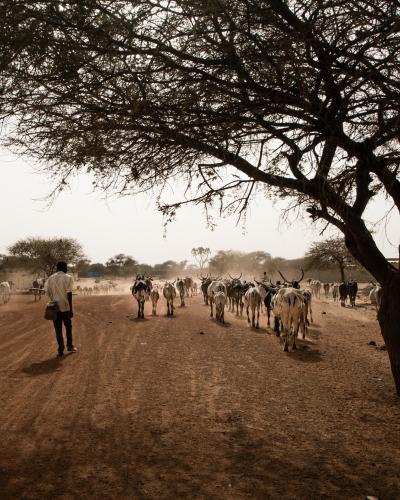From February 7 to 11, Switzerland, together with Guyana and the United Kingdom, will lead a visit to Colombia by the 15 members of the UN Security Council. The aim of the Council is to gain an insight into the situation in the country, the implementation of the 2016 agreement and to support the establishment of a lasting peace. Switzerland remains strongly committed to the peace process in Colombia.
The 15 members of the UN Security Council, including Switzerland's Permanent Representative in New York, Ambassador Pascale Baeriswyl, met with Colombian President Gustavo Petro in Bogotá on Thursday. The agenda also included meetings with various actors in the peace process, representatives of the authorities responsible for implementing the 2016 peace agreement, the Special Jurisdiction for Peace, former combatants and members of parliament.
During the trip, the Council will make several field visits in the west and south of the country. In particular, it will be able to assess the progress made in humanitarian demining, the retraining and reintegration of ex-combatants, and the situation of indigenous and Afro-Colombian communities, which have long been victims of exclusion and inequality, and which continue to be disproportionately affected by the violence.
Switzerland is co-leading the trip, along with Guyana, which holds the presidency of the Security Council in February, and the United Kingdom, which is taking on the role of editor on the Colombian dossier. Switzerland has been involved in peace policy in Colombia for more than 20 years. Since the beginning of its mandate on the Council in January 2023, it has been able to strengthen its support for the peace process in Colombia within this framework too. Thanks to its longstanding commitment and expertise, Switzerland is a well-known and respected player in Colombian peace policy. Switzerland has assumed the role of guarantor state in the negotiations with the rebel group Estado Mayor Central de las FARC-EP (EMC) and the role of accompanying state in the peace talks with the Ejército de Liberación Nacional (ELN). It also supports the implementation of the 2016 peace agreement, providing substantial humanitarian aid for the civilian population affected by the violence, and supporting various projects to promote peace and human rights in the country.
Colombia has been affected by armed conflict for several decades. It is estimated that more than 200,000 people – mostly civilians – have been killed to date and 8 million have been displaced. In 2016, a peace agreement was signed between the Colombian government and the FARC-EP. Since then, however, fighting has intensified in some regions of the country, involving other armed groups and complicating the implementation of the peace agreement and the development of rural areas affected by armed violence.
This is the third visit to Colombia by the Security Council, which addressed this issue in 2016. At the request of the Colombian Government, the United Nations Verification Mission in Colombia was established to verify the implementation of the Final Peace Agreement and to assist Colombia in ending the conflict and building peace. The Council reviews the situation in Colombia every three months.




